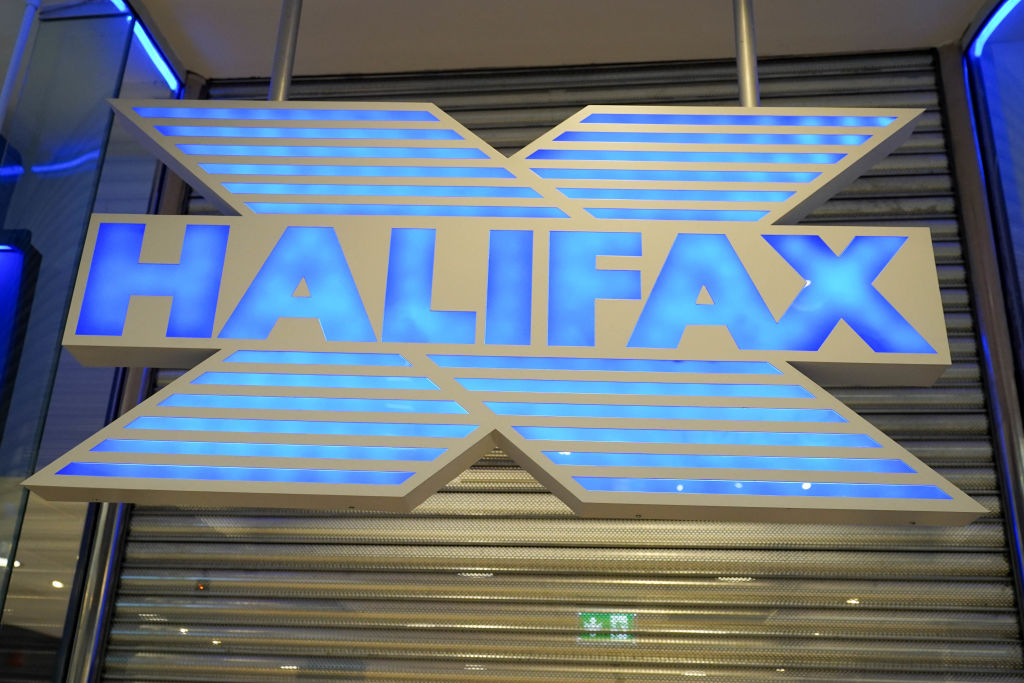The days when you could get 7% from your bank are long gone – so what do you do?
With interest rates at rock bottom for so long, we’ve been forced to move from saving to speculating to earn any sort of return. Dominic Frisby asks where we should put our money now, and explains where he’s put his.


Get the latest financial news, insights and expert analysis from our award-winning MoneyWeek team, to help you understand what really matters when it comes to your finances.
You are now subscribed
Your newsletter sign-up was successful
Want to add more newsletters?

Twice daily
MoneyWeek
Get the latest financial news, insights and expert analysis from our award-winning MoneyWeek team, to help you understand what really matters when it comes to your finances.

Four times a week
Look After My Bills
Sign up to our free money-saving newsletter, filled with the latest news and expert advice to help you find the best tips and deals for managing your bills. Start saving today!
Earlier in the week I stumbled across an old TV ad from the 1980s for the Leeds Permanent Building Society. It featured George Cole (he of Arthur Daley fame) bumbling from wide-boy investment opportunity to wide-boy investment opportunity.
The moral of the ad was that, instead of getting involved in harebrained businesses, you’re better off putting your money in the Leeds Liquid Gold account, because it pays 7.65% interest. 7.65%! This was a normal rate of interest back then.
We’ve been forced into becoming a nation – nay, a world – of speculators
The Leeds Permanent Building Society was not so permanent as it turned out. It merged with the Halifax Building Society, and lost its name. The Halifax then merged with Bank of Scotland to form HBOS in 2001. Then, following the global financial crisis, that became part of the Lloyds Banking Group.
MoneyWeek
Subscribe to MoneyWeek today and get your first six magazine issues absolutely FREE

Sign up to Money Morning
Don't miss the latest investment and personal finances news, market analysis, plus money-saving tips with our free twice-daily newsletter
Don't miss the latest investment and personal finances news, market analysis, plus money-saving tips with our free twice-daily newsletter
Today the equivalent Halifax Everyday Saver account pays 0.01%. We don’t have the option of 7.65% interest at the Leeds or anywhere else, and so we get involved in harebrained businesses, otherwise known as the stockmarket, instead.
This dynamic explains so much. When you do a job, you expend energy. For expending that energy, you are paid. The money you are paid is, in a way, a store of that energy, which you can then draw on at some later stage to buy some kind of good or service. For the system to work, it is vital that monetary energy is retained.
When interest rates roughly reflected inflation, as in the 1980s, most of your energy was retained. There was an honesty to the system – that has long since disappeared.
As globalisation took hold in the 1990s, the incredible manufacturing powerhouse that was China was able to export its cheap goods aplenty and we bought them aplenty. China’s manufacturing costs were a lot cheaper than ours, and so China effectively exported lower prices. Meanwhile, in the West, in our measures of inflation we focus on consumer prices, which, thanks to China, kept getting lower and lower. “Look, inflation is low”, said central bankers, as they ignored all the debt being created to buy houses, commercial property and financial assets. And so interest rates gradually got lower.
Some could see that their money was losing its energy. House prices were going up at ridiculous rates. It was easy to borrow money. And so buy-to-let became a thing. You’re better off keeping your money in “bricks’n’mortar”. Don’t sell your flat as you move up the ladder to buy a house, just keep the flat and borrow more.
Instead of putting your money into the Leeds, you might have bought government bonds or gilts. These also paid you an interest rate that compensated you for the loss in purchasing power of your currency, and helped retain that energy you had expended earning the money in the first place. But since 2008, that option no longer exists either. There is no way you’ll hang on to your expended energy. Pension funds only buy bonds because they have to. I’m not joking – regulations oblige them.
We had the transformative invention of tracker funds and the exchange-traded fund (ETF). No longer did you have to take individual company risk, or individual fund manager risk; you could just buy the stockmarket.
So where do you put your money now?
And so, this century, the stockmarket, especially to our American brothers and sisters, effectively became a savings vehicle that returned you somewhere between 5% and 20% a year. (Most years).
In fact, it became such an effective savings vehicle that many began using leverage (another word for debt) to buy more, and so the money supply increases. It was a bit like buy-to-let. And the stockmarket, especially in the US, continually rises to levels which for years have had fund managers scratching their heads and wondering why they bother. The S&P 500 has become a savings vehicle.
I remember interviewing James Turk, founder of Goldmoney, back in 2006. We talked at great length about the loss of purchasing power of fiat money. James went so far as to write a book: The Coming Collapse of the Dollar and How to Profit from It. “Buy gold,” James would say. At the time it was trading around $500 an ounce.
“If we buy gold,” I asked him, “how do we know when to sell it?” “You’re not going to sell it,” James said. “You’re going to spend it.” In other words we were going to go back to using gold as money.
Like Turk, Satoshi Nakamoto took a look at what was going on with the system, and he didn’t like what he saw either. So he invented a new system of money called bitcoin. It really caught on. Here was a new system of money to save in and, boy, did it retain its energy. “HODL!” (hold your bitcoin indefinitely) has become its war cry.
Today bitcoin is gold 2.0, they say. Digital gold. It is immune to the pernicious forces of inflation. Its inflation rate is set in code. Even large public companies are using it as their savings vehicle. Microstrategies (Nasdaq: MSTR) has just raised another billion dollars to buy bitcoin, on top of the billion and a half it has already spent. Jack Dorsey’s Square announced yesterday that it has purchased another $190m-worth.
So we buy bitcoin, we HODL. How do we know when to sell? You’re not going to sell your bitcoin, they say. You’re going to spend it. I’ve heard that one before.
No, really you are. Bitcoin’s most vocal proponents constantly lobby companies and individuals to start accepting bitcoin. You’ll be able to buy a Tesla with it. Some house vendors now accept bitcoin. You can buy art – in the form of NFTs (more on those in the next issue of MoneyWeek, out on Friday – subscribe here if you don’t already have a subscription).
What about the capital gains tax implications of spending bitcoin (rather than trading it)? Do you have to pay CGT when you spend it? I’m looking forward to watching that argument. Life would be so much easier if governments protected the purchasing power of the currency they issued. But life isn’t easy, and governments print. What’s your chosen savings vehicle?
Daylight Robbery – How Tax Shaped The Past And Will Change The Future is now out in paperback at Amazon and all good bookstores with the audiobook, read by Dominic, on Audible and elsewhere.
Get the latest financial news, insights and expert analysis from our award-winning MoneyWeek team, to help you understand what really matters when it comes to your finances.

-
 Should you buy an active ETF?
Should you buy an active ETF?ETFs are often mischaracterised as passive products, but they can be a convenient way to add active management to your portfolio
-
 Power up your pension before 5 April – easy ways to save before the tax year end
Power up your pension before 5 April – easy ways to save before the tax year endWith the end of the tax year looming, pension savers currently have a window to review and maximise what’s going into their retirement funds – we look at how
-
 Average UK house price reaches £300,000 for first time, Halifax says
Average UK house price reaches £300,000 for first time, Halifax saysWhile the average house price has topped £300k, regional disparities still remain, Halifax finds.
-
 The UK cities where it’s cheaper to buy a house than rent
The UK cities where it’s cheaper to buy a house than rentFor people in some areas of the country, home ownership is a distant dream. But for others it can be surprisingly affordable.
-
 UK house prices remained flat in May, Halifax finds
UK house prices remained flat in May, Halifax findsNews Average house prices fell 0.1% month-on-month, meaning they have remained relatively static for three consecutive months on the Halifax HPI.
-
 Crypto scams – what to look out for
Crypto scams – what to look out forFraudsters are using cryptocurrency scams to lure investors desperate for high returns - here is how to spot and avoid them
-
 Halifax: House price slump continues as prices slide for the sixth consecutive month
Halifax: House price slump continues as prices slide for the sixth consecutive monthUK house prices fell again in September as buyers returned, but the slowdown was not as fast as anticipated, latest Halifax data shows. Where are house prices falling the most?
-
 Rents hit a record high - but is the opportunity for buy-to-let investors still strong?
Rents hit a record high - but is the opportunity for buy-to-let investors still strong?UK rent prices have hit a record high with the average hitting over £1,200 a month says Rightmove. Are there still opportunities in buy-to-let?
-
 Pension savers turn to gold investments
Pension savers turn to gold investmentsInvestors are racing to buy gold to protect their pensions from a stock market correction and high inflation, experts say
-
 Where to find the best returns from student accommodation
Where to find the best returns from student accommodationStudent accommodation can be a lucrative investment if you know where to look.